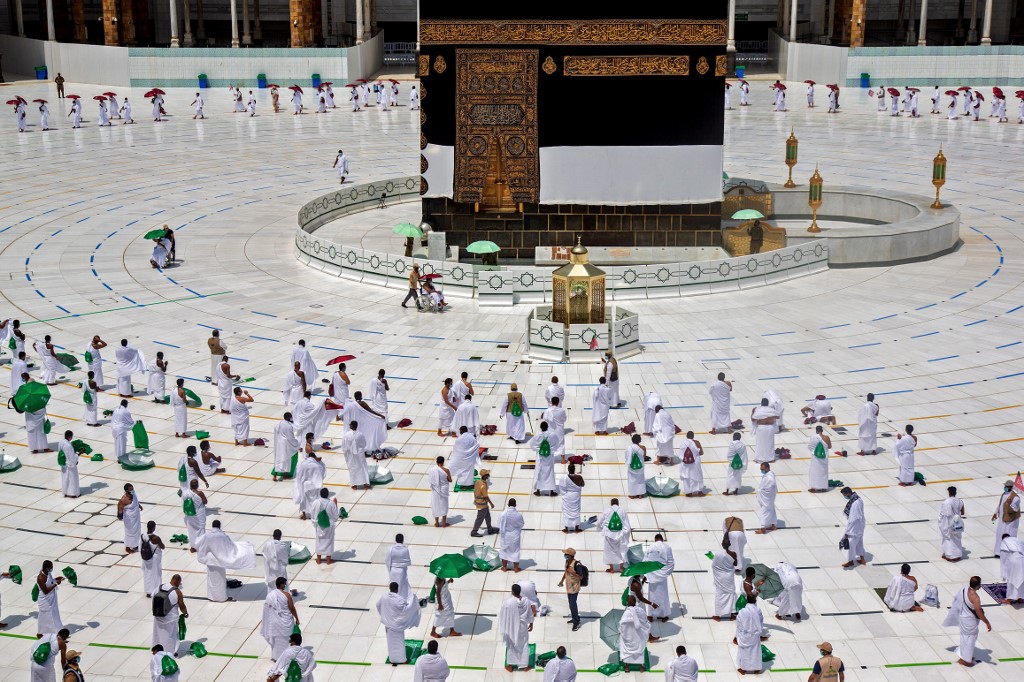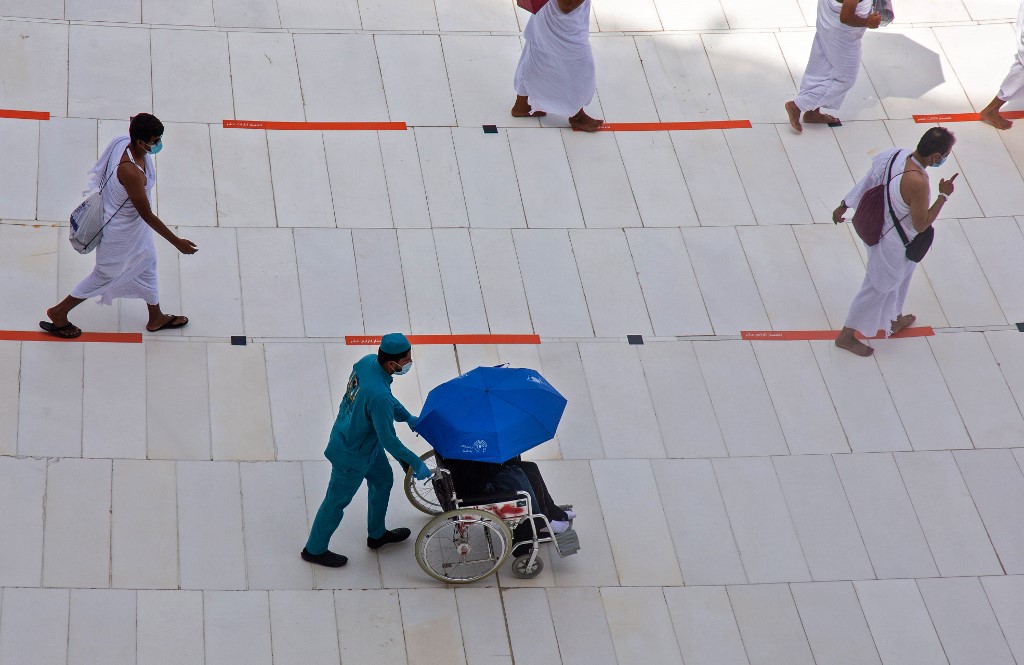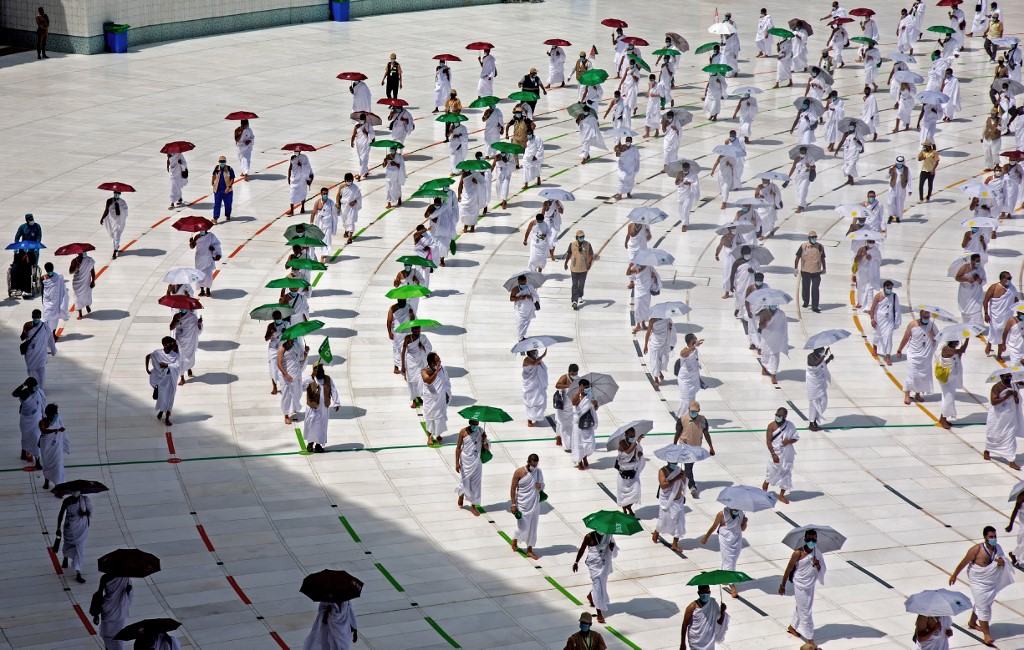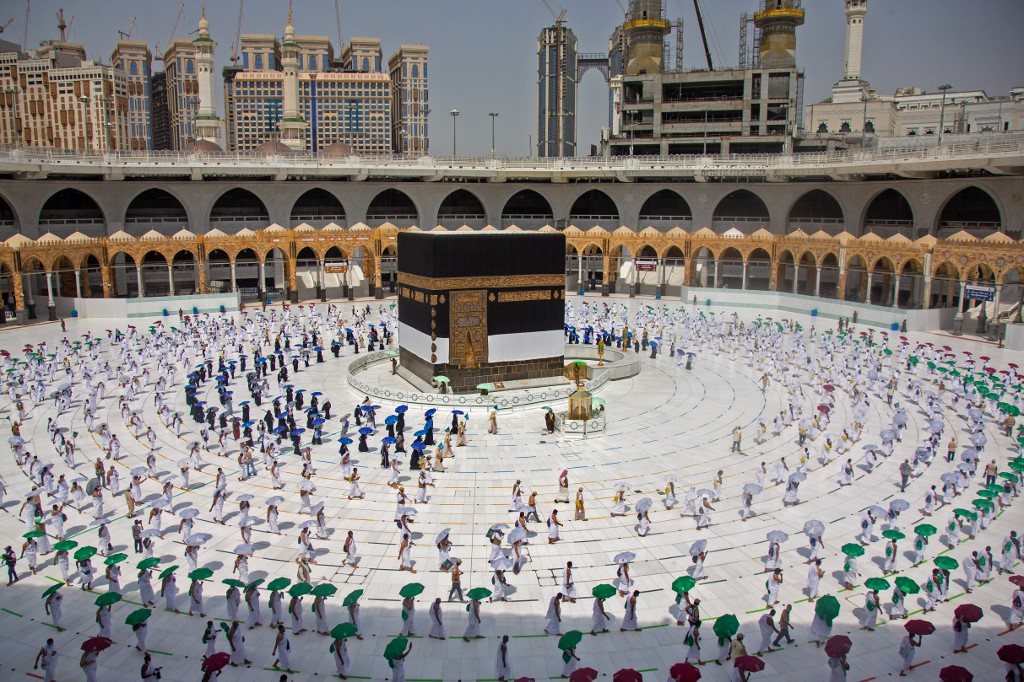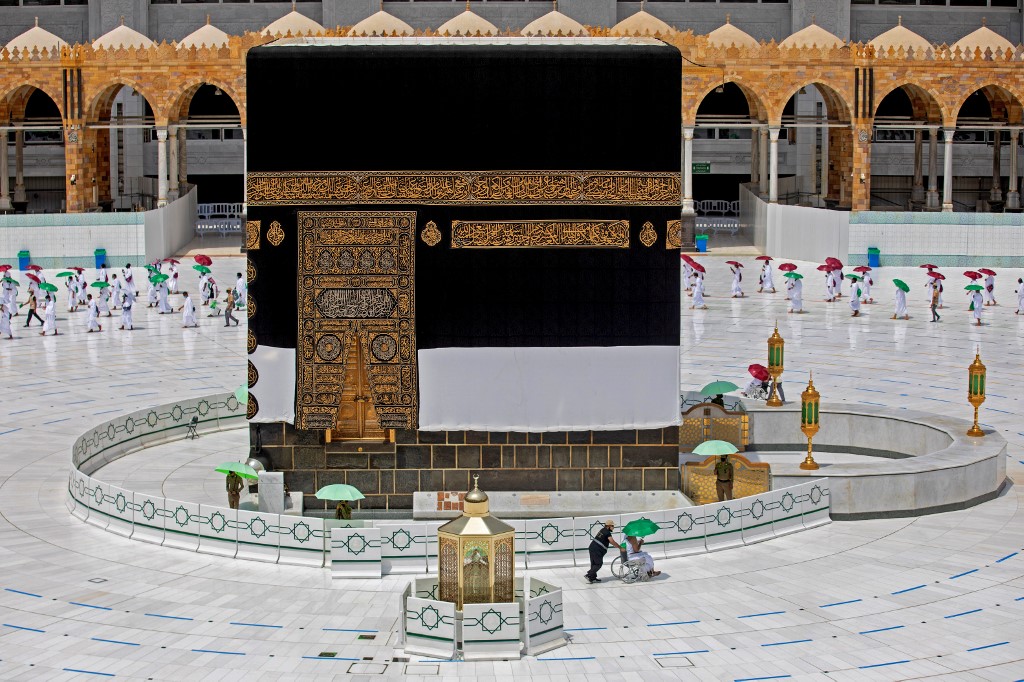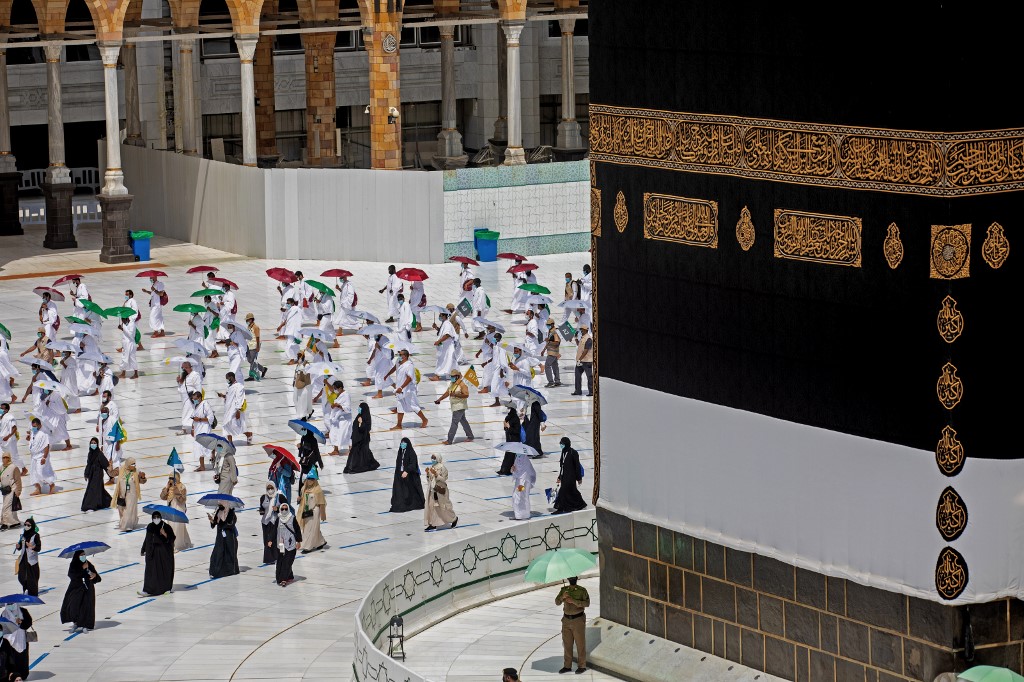
Muslims started their first pilgrimage ritual for Hajj during the pandemic inside Mecca’s Grand Mosque on Wednesday, with “safety bubbles” and social distancing procedures heavily enforced to further protect worshippers from the spread of the coronavirus, the Saudi health ministry told CNN.
Around 1,000 Muslim worshippers started the Tawaf Al-Qudum, or the Tawaf of Arrival, which is the initial ritual carried out upon entering Mecca’s Grand Mosque and circling Islam’s holiest shrine, the Ka’aba, a statement by the Saudi Ministry of Media said.
Saudi Arabia’s health ministry is facing the task of ensuring that those chosen for this year’s pilgrimage are coronavirus-free, and also enforcing social distancing measures inside the different rituals associated with the Hajj, Assistant Deputy Minister for Preventative Health at the Saudi Ministry of Health, Dr. Abdullah Assiri told CNN in an interview on Wednesday.
“There are some rituals of Hajj that we cannot really separate [the pilgrims] because they have to be in one place at one time, so we had to prepare these places in a way that maintains social distancing and also to make available the personal protective equipment for these places,” Dr. Assiri said.
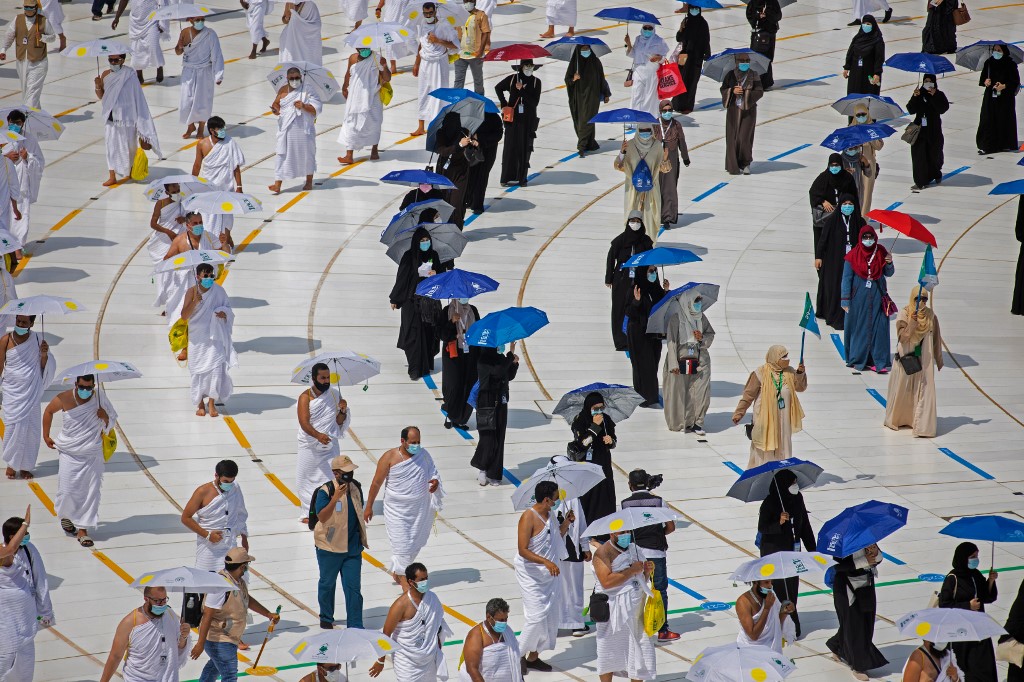
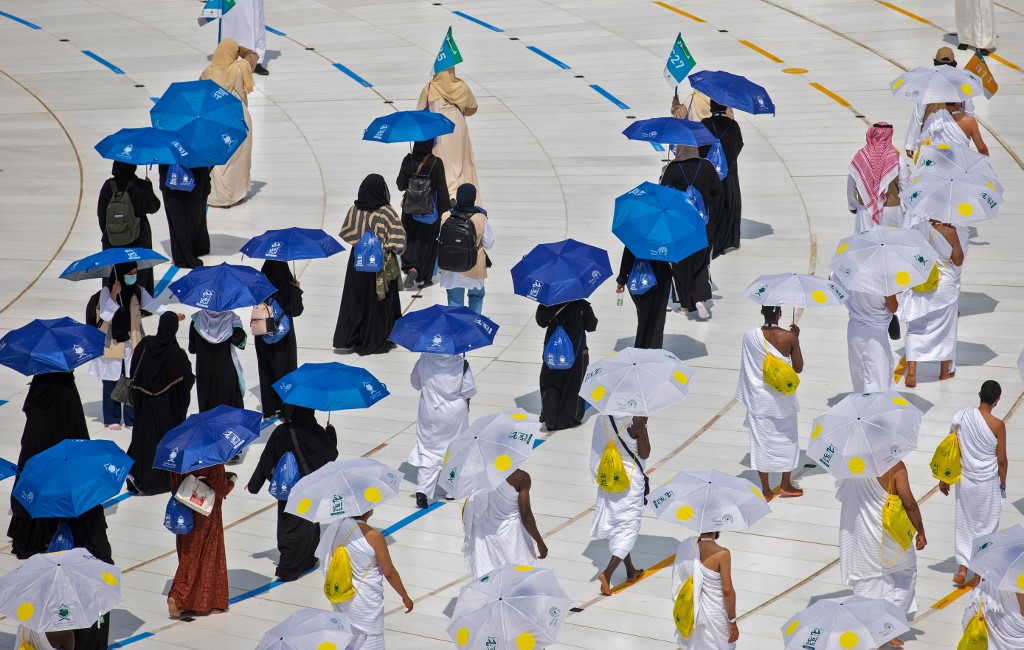
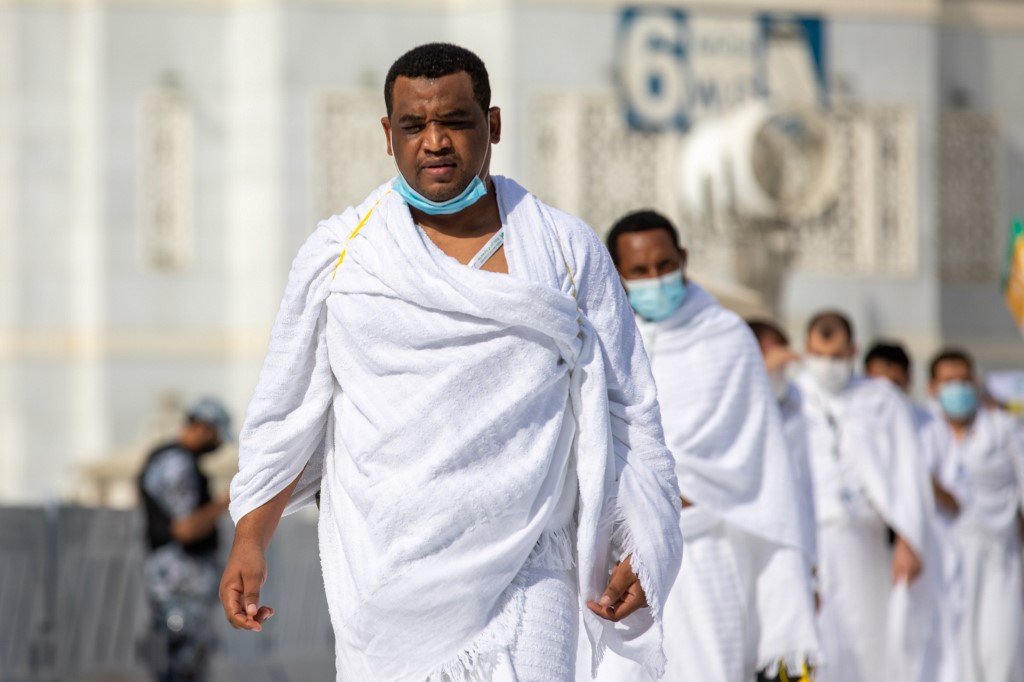
The Muslim ritual, considered one of the five pillars of Islam, has hosted more than two million people in recent years, but after the coronavirus outbreak, Saudi authorities were forced to ban international visitors wishing to perform Hajj this year.
The ministries started preparing for the scaled down Hajj in February and after selecting 1,000 pilgrims — Saudis and foreign residents in the Kingdom, between the ages of 20-50. They enforced a 14-day pre-Hajj quarantine, tested them, provided trainings on social distancing and monitored, according to Assiri.
“We are trying to apply the concept of safety bubbles, where every pilgrim will have an environment around him or her that are free and safe as much as possible from any kind of hazards, so all that is needed by the Hajjis is their personal protective equipment their hygiene products are provided free of charge,” he said.
Kakvo je tvoje mišljenje o ovome?
Učestvuj u diskusiji ili pročitaj komentare





 Srbija
Srbija
 Hrvatska
Hrvatska
 Slovenija
Slovenija




